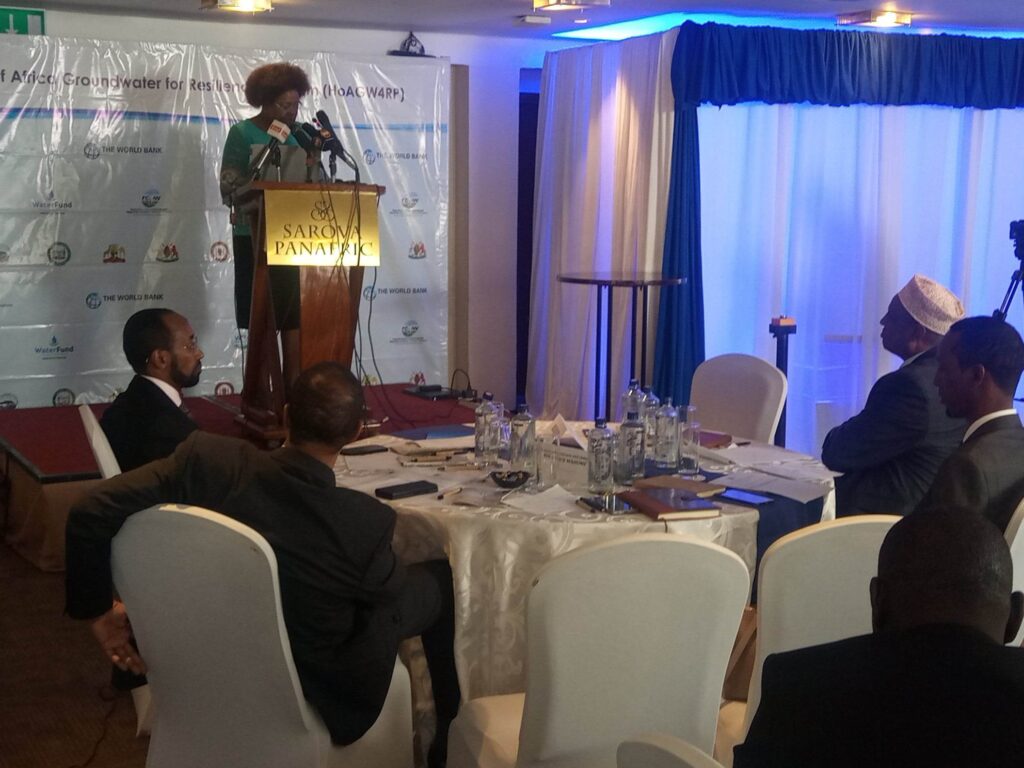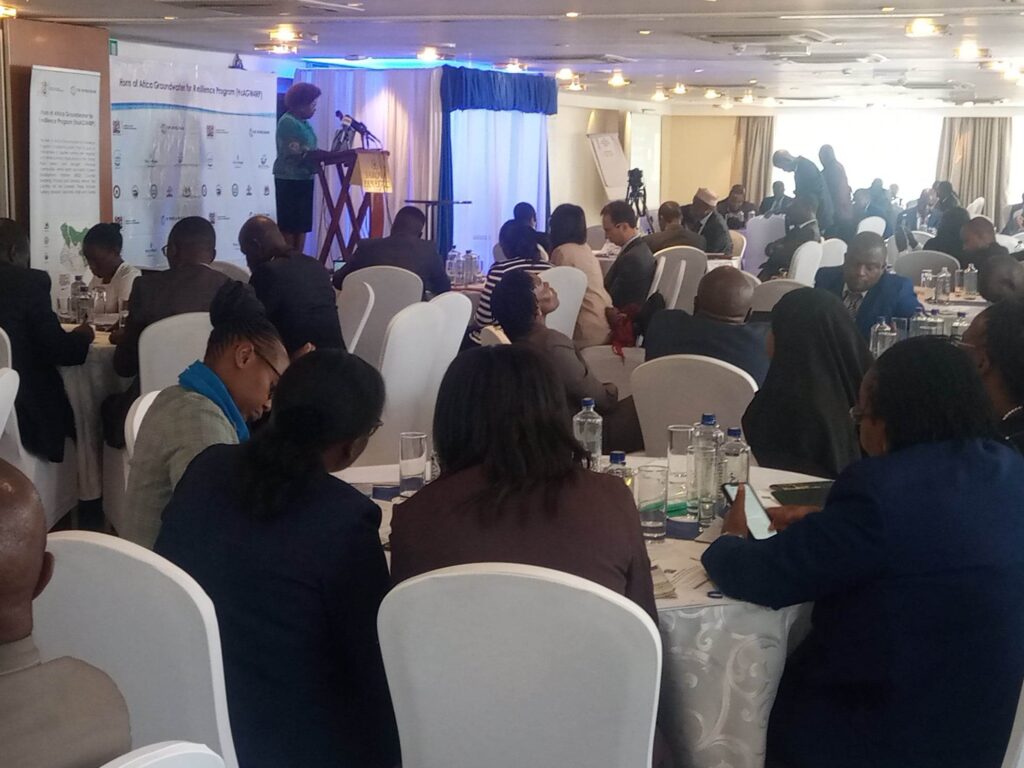The Ministry of Water, Sanitation and Irrigation has commenced the implementation of the Horn of Africa; Groundwater for Resilience Project (GW4RP) whose objective is to increase the sustainable access and management of groundwater in the Horn of Africa borderlands against the effects of recurrent drought.
The GW4RP is a programme that will be implemented with the Ministry in partnership with the World Bank Group (WBG) targeting the ASAL five Counties of Wajir, Mandera, Turkana, Marsabit and Garissa.
Speaking during the official launch of the commencement of the programme from a Nairobi Hotel at a function attended by stakeholders in the programme, Water, Sanitation and Irrigation Cabinet Secretary Alice Wahome said that the project that will cost an upward of USD 135 Million will be disbursed within 6 years period running from 2022 to 2027.
‘This will benefit approximately 1.5 million people in the beneficiary Counties with several intergrated projects comprising of water resource management, water services and sanitation services,’ CS Wahome said.
She assured that no shilling will be lost in the whole process warning that contractors that will be involved in any malpractice will be blacklisted.
County Govenors from the affected areas who were present asked for the speedy implementation of the project citing that the ongoing severe drought has hit hard in the Northern Kenya region leading to massive loss of livestock and lives.
They included Mandera’s Mohamed Adan Khalif, Wajir’s Ahmed Abdullahi, Garissa’s Nathif Jama and Marsabit’s Mohamud Mohamed Ali.

The project is being implemented in phases with Kenya, Ethiopia and Somalia participating in phase 1. IGAD is implemenmting the regional component through joint study of transboundary aquifers and capacity building.
The programme will have 4 components which includes delivering inclusive groundwater services to priority areas, generating groundwater information and strenghtening regional groundwater institutions, project management and lastly emergency contigency response.

The expected key outputs of the project will see more that 400 boheholes rehabilitated, groundwater management and development startegy formulated, transboundary water policy and mainstream operation and maintanence of borehole water supplies.
Other outputs will see to it that water institutions handling groundwater capacity are built and aquifer management and development plans are developed.
